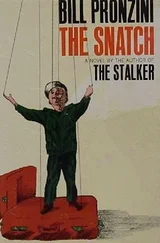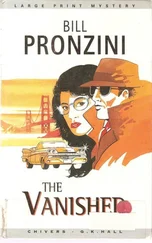Jan was in Hilliard by now. Had he found Novotny? And if he had, what then? More heated words? A fight?
She stirred restlessly, got up to check the stove. The fire needed refueling, but there was no more wood in here and she didn’t want to go outside to the shed. Besides, if she built the fire up again, the wind would only blow more smoke into the room. She went back to the couch and drew the afghan over her, wishing there was something she could do besides just sitting and waiting.
But what could she do? Call the sheriff? Jan wouldn’t want that; and there was nothing the sheriff could do either, no evidence that Novotny had been responsible for the rats. Call Cassie? She had a car; she could drive out here, the two of them could drive into the village… no. By that time, whatever was happening between Jan and Novotny would be finished. And Mandy was coming, and in some kind of trouble. And she couldn’t involve Cassie without taking the woman into her confidence, explaining everything that had happened so far.
She closed her eyes, willed herself to relax, to remain calm. But images of the whole harrowing day played against the inside of her lids: Jan’s face when he’d come back upstairs this morning, after the phone call… the filthy brown water streaming from the showerhead
… Harvey Olsen’s weak, tormented eyes… Jan, insubstantial in the fog when he’d gone to open the garage on their return from dinner
… Jan, his face contorted with rage as he raised the brass-handled umbrella against the rat… Jan, with that same look on his face just before he left in the car…
She grabbed one of the sofa cushions, pulled it over, and propped it under her head like a pillow. It had been such a long day, one spent riding an emotional roller-coaster: passion… worry… revulsion… anger… purposefulness… frustration… hope… and then the horror, the very real horror.
She was tired, bone-tired. And at some point, despite her anxiety, she slipped into a fitful sleep. Her dreams, when they came, were reprises of her memories of the day, but surreal, detailed yet at the same time vague: Jan in a desperate struggle with Mitch Novotny… Jan lying broken and bloodied like the rat… Novotny and some of the other villagers driving on the cape road, coming for her…
And then the scenes repeated, only this time Jan was winning his battle with Novotny… Jan was standing over the man’s broken body, his face a grimace of rage and triumph… Jan was the driver of the car coming along the cape road, and he wasn’t alone. On the seat beside him was Mandy Barnett…
Alix jerked awake and sat up, looking wildly around the room, fighting off the vestiges of her nightmares. She was damp and sticky with sweat; her hair clung to her forehead in greasy strands; her mouth was dry and tasted sour. The room was cold, the fire in the stove long since gone out. And milky gray light had begun to seep around the edges of the window blinds.
Morning.
Morning!
She came off the couch in convulsive moments, blinking, staring at her watch. Close to seven. She groped her way to the front door, jerked it open, looked out. The garage doors were still open, the interior empty; there was no sign of the station wagon. Jan hadn’t come home. Dear God, where was he? And Mandy… she hadn’t come either. Why? What had happened during those dark hours while she’d slept and dreamed?
She felt a sudden, overpowering sense of urgency. She couldn’t stay here any longer, couldn’t take another minute of not knowing. Walking the more than three miles into the village would take too long. Whether she liked it or not, she would have to put herself in Cassie Lang’s hands-call her, ask her to drive out, and then start walking to meet her.
Quickly, Alix went to the telephone table, looked up Cassie’s number in the slim county directory, dialed it. It rang eight, nine, ten times. No answer. She let it ring ten more: still no answer. Damn! She checked the number again, redialed. Still no response. Cassie must be one of those people who didn’t like to be awakened by the phone, who unplugged it before going to bed. Either that, or she’d gone out on some early-morning errand.
Frantic now, Alix tried to think of someone else to call. But no one else in Hilliard would be likely to help her. And the sheriff.. no, she couldn’t call the sheriff. It was either walk to the village or stay here, and she couldn’t stay here.
Her pea jacket was on a peg next to the door; she put it on, hastily checked her pocket for the keys, and went out. The early-morning air was warmer than she’d expected, and very damp from the fog. The odor of the sea was strong, salt-laden. There was no sound anywhere except for the muffled crash of the surf against the rocks below the cliffs.
The gate stood open as Jan had left it last night. Instinctively, she tugged it shut behind her; the moisture that saturated the rough whitewashed boards made her shiver. For a moment she stood looking south along the curve of the shoreline, saw the surf roiling over the beach where she’d walked with Cassie-slate-gray water topped with white foam. Ahead of her the terrain was partially obscured by the low-hanging mist. She stifled another shiver, set off at a fast walk along the road.
On either side of her the mist was pervasive, half obliterating the shapes of scrub vegetation and rocks. It seemed to mute all sound: the waking rustles of birds in the gorse and Oregon grape, the slap of her tennis shoes on the uneven surface of the roadbed. She kept her eyes cast downward, concentrating on where she was walking, trying not to think of what might await her in Hilliard.
After a mile or so she came on the long stretch where those strange porcupine-like clumps of tule grass grew; the mist made them look more than ever like herds of some alien animal lying in wait. Then she was into the thick copse of fir trees, and the darkness in there made her hurry, so that she was almost running by the time she emerged.
Past the open fields where sheep huddled together for warmth. Past another stand of trees. And then she was alongside the gully where the body of the strangled hitchhiker had been found… she recognized it with a rippling frisson and quickened her pace again.
How far to the county road now? Less than a mile, she was certain of that. But she was tiring rapidly, and to keep herself going she played a childlike game with herself: See that cluster of cypress ahead? When you get past that, you’ll be able to see the intersection. And when she reached the cypress, and the county road was still nowhere in sight: See that sharp curve up there? The junction is just past it…
She was well beyond the curve, passing through another section of sheep graze, when something caught her eye: metal glinting in the weeds in a hollow to the left of the road.
The metal was silvery, dull in the muted light. Although the grass was high, in the hollow, she could see traces of another color-a bright, electric blue.
She stopped abruptly, peering down there. What looked to be tire marks gouged the grassy verge, and a section of the fence between the road and the hollow had been knocked down, flattened, as if by something heavy-a car, perhaps. Alix frowned, biting her lip. Then, hesitantly, she moved toward the fence, closer to what lay in the high grass of the hollow. Close enough to identify it.
A bicycle.
Mandy Barnett’s bicycle?
Its front tire was flat, and the handlebars were bent at an odd angle; the spokes of the rear wheel were mangled. And the bike didn’t look as if it had lain there for tong-it wasn’t rusted, and the bright blue paint was relatively new. Bright blue paint that matched the poncho and headband Mandy habitually wore.
Alix felt a sharpening of both tension and fear. An accident? Was that why Mandy hadn’t shown up at the lighthouse last night? But who would be driving on the cape road late at night, who else but No.
Читать дальше












